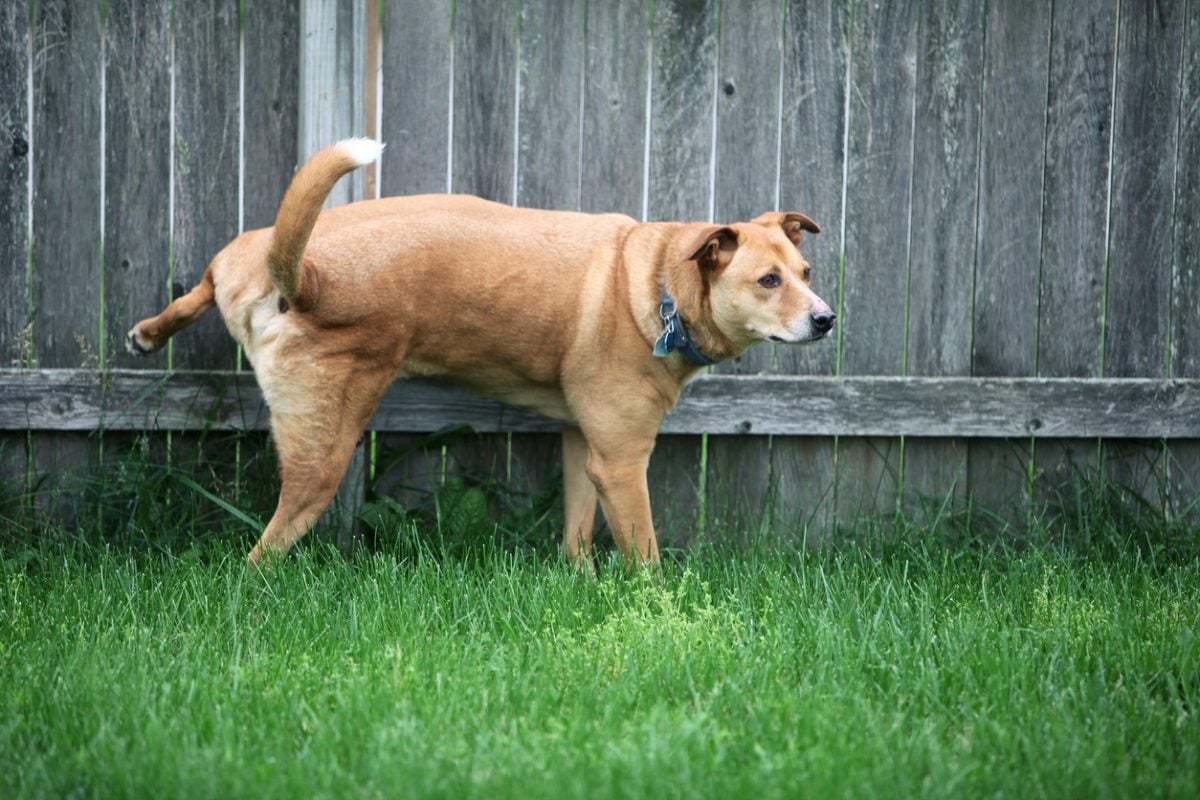Is your beagle leaving puddles everywhere? It may seem like your furry friend has an endless supply of pee, but there’s a reason behind it. Beagles are known for being prone to urinary issues, which can result in frequent urination. So why does your beagle pee so much? Let’s dive in and explore the possible reasons behind this behavior.
Beagles have a relatively small bladder capacity compared to larger dog breeds. This means they need to relieve themselves more frequently. Additionally, beagles are known for their curiosity and high energy levels, which can lead to increased water intake and subsequent urination. It’s important to ensure your beagle has regular bathroom breaks and access to fresh water throughout the day. If excessive urination persists or is accompanied by other concerning symptoms, it may be worth consulting with a veterinarian to rule out any underlying health issues.
If your beagle is peeing excessively, it may be a sign of a medical issue such as a urinary tract infection or diabetes. It’s important to consult with a veterinarian to rule out any underlying health problems. Additionally, be sure to provide your beagle with plenty of opportunities for regular bathroom breaks and consider implementing consistent potty training techniques. Ensuring your dog has a well-balanced diet and enough exercise can also help regulate their bathroom habits.

Understanding the Frequent Urination in Beagles
Beagles are known for their curious and energetic nature, but one common issue that owners may face is their beagle peeing more frequently than normal. It can be frustrating and concerning for pet parents to constantly deal with accidents and excess urination. If you’re wondering, “Why does my beagle pee so much?” this article will explore the potential reasons behind this behavior and provide insights into managing it.
Frequent urination in beagles can be attributed to various factors, including medical conditions, diet, age, and training. Understanding these underlying causes can help you address the issue effectively and ensure the well-being of your furry friend. Let’s dive into the possible reasons why your beagle may be peeing more than usual.
1. Urinary Tract Infections (UTIs)
One of the most common reasons for excessive urination in beagles is a urinary tract infection (UTI). UTIs occur when bacteria enter and multiply in the urinary tract, causing inflammation and irritation. Symptoms of a UTI in dogs may include frequent urination, urgency, accidents in the house, and discomfort during urination.
If you suspect that your beagle has a UTI, it’s important to consult with your veterinarian for a proper diagnosis. They may recommend a urine test to confirm the infection and prescribe antibiotics to treat it. Ensuring your beagle completes the full course of antibiotics will help resolve the UTI and reduce the excessive urination.
2. Diabetes
Diabetes is another possible cause of frequent urination in beagles. Canine diabetes, similar to diabetes in humans, occurs when the body cannot effectively regulate blood sugar levels. Excess sugar in the bloodstream leads to increased thirst and, consequently, increased urination.
If you notice your beagle drinking more water than usual and having accidents in the house, it’s important to consider diabetes as a potential cause. A visit to the vet will help determine if diabetes is the underlying issue. Treatment for canine diabetes may involve insulin injections, dietary modifications, and monitoring blood sugar levels.
3. Bladder Stones
Beagles are susceptible to bladder stones, which are mineral deposits that form in the bladder. These stones can cause irritation and inflammation, leading to frequent urination. Other symptoms of bladder stones may include blood in the urine, straining during urination, and discomfort.
If you suspect your beagle has bladder stones, it’s crucial to consult with a veterinarian. They can perform imaging tests, such as X-rays or ultrasounds, to determine the presence and size of the stones. Treatment options may include medication to dissolve the stones or in severe cases, surgical removal.
4. Excitement or Anxiety
Beagles are an excitable breed known for their energetic behavior. Excessive excitement or anxiety can lead to increased urination. For example, when your beagle greets you after a long day, their excitement may trigger involuntary urination. Similarly, anxiety or fear can also cause them to lose control of their bladder.
Training and desensitization exercises can help manage excitement or anxiety-induced excessive urination in beagles. Consult with a professional dog trainer or behaviorist to learn effective techniques to manage and reduce these behaviors.
5. Hormonal Imbalances
Hormonal imbalances, such as an underactive thyroid (hypothyroidism) or an overactive adrenal gland (Cushing’s disease), can also contribute to increased urination in beagles. These conditions affect the body’s hormone regulation, leading to changes in metabolism and fluid balance.
While hormonal imbalances require medical intervention and treatment, it’s important to consult with a veterinarian for proper diagnosis. They may conduct blood tests to assess hormone levels and recommend appropriate treatment options to manage the condition.
How to Manage Excessive Urination in Beagles
If your beagle is peeing more than usual, there are steps you can take to manage the issue and ensure their well-being. Here are some strategies to consider:
1. Visit the Veterinarian
If your beagle is experiencing excessive urination, it’s essential to schedule a visit to the veterinarian. They can conduct a thorough examination, run necessary tests, and provide a proper diagnosis. Treatment options can then be recommended based on the underlying cause.
2. Maintain a Regular Feeding Schedule
Establishing a regular feeding schedule can help regulate your beagle’s bladder. Feeding them at consistent times can create a routine that allows for more predictable bathroom breaks. Avoid free-feeding and ensure they have access to fresh water throughout the day.
3. Provide Ample Opportunities for Bathroom Breaks
Make sure to give your beagle ample opportunities to go outside and relieve themselves. Take them for frequent bathroom breaks, especially after meals and naps. This will help prevent accidents in the house and reduce the need for excessive urination.
4. Monitor Water Intake
Monitor your beagle’s water intake to ensure they are not drinking excessively. Remember that increased thirst can be a symptom of various health issues. If you notice your beagle consistently drinking excessive amounts of water, consult with your veterinarian for further evaluation.
5. Implement Training and Behavioral Techniques
If excitement or anxiety is causing your beagle to urinate more frequently, training and behavioral techniques can be effective in managing these behaviors. Professional trainers or behaviorists can provide guidance on techniques such as desensitization and reward-based training to reduce anxiety-induced accidents.
Conclusion
Excessive urination in beagles can have various underlying causes, including urinary tract infections, diabetes, bladder stones, excitement, anxiety, and hormonal imbalances. Identifying the specific cause through consultation with a veterinarian is crucial in order to implement appropriate treatment and management strategies.
By understanding the reasons behind your beagle’s frequent need to urinate and taking appropriate steps to manage the issue, you can ensure their comfort, health, and happiness. Remember, always consult with a veterinary professional for accurate diagnosis and guidance.
Key Takeaways for “why does my beagle pee so much?”
- Beagles have a high metabolism, which can lead to frequent urination.
- Excessive drinking or medical conditions, such as urinary tract infections or diabetes, can cause increased urine production in beagles.
- Inappropriate house training or marking behavior can also contribute to excessive peeing in beagles.
- Beagles may be more prone to anxiety or stress-related urination, leading to more frequent bathroom breaks.
- If your beagle is peeing excessively, it’s important to consult with a veterinarian to rule out any underlying medical issues.
Frequently Asked Questions
Beagles are known for their boundless energy and friendly disposition, but if your beagle is peeing more than usual, it can be a cause for concern. In this section, we will answer some frequently asked questions about why your beagle may be peeing so much.
1. What are the common reasons behind excessive urination in beagles?
There can be several reasons why your beagle is urinating more frequently than usual:
The first and most common reason is a urinary tract infection (UTI). Beagles are prone to UTIs, which can cause increased urination along with other symptoms like frequent licking of the genital area, blood in the urine, and discomfort while urinating.
Another reason could be diabetes. Just like humans, dogs can develop diabetes, and one of the main symptoms is increased thirst and urination. If your beagle is also drinking more water than usual, it’s important to get them tested for diabetes.
2. Can diet and water intake affect a beagle’s urination frequency?
Absolutely. The food your beagle eats and their water intake can have a significant impact on their urination frequency.
If your beagle is consuming a diet high in salt, it can lead to increased thirst and ultimately increased urination. Similarly, providing excessive amounts of water or giving access to water all the time can also contribute to frequent urination.
3. Are there any behavioral or psychological factors that can cause excessive urination?
Yes, behavioral and psychological factors can play a role in increased urination in beagles.
Stress and anxiety can lead to urinary accidents, especially if your beagle is not properly house trained or if they have experienced a recent change in their environment or routine.
If you suspect that behavioral or psychological factors may be contributing to your beagle’s excessive urination, it’s a good idea to consult with a professional dog trainer or animal behaviorist to address the underlying issues.
4. Can certain medical conditions cause increased urination in beagles?
Yes, apart from urinary tract infections and diabetes, certain medical conditions can also lead to increased urination in beagles.
Conditions such as kidney disease, Cushing’s syndrome, and bladder stones can all cause an increase in urination frequency. If you suspect that your beagle may have a medical condition, it’s crucial to consult with a veterinarian for a proper diagnosis and treatment plan.
5. When should I be concerned about my beagle’s excessive urination?
If your beagle’s urination frequency has significantly increased, it’s important to be vigilant and seek veterinary advice if:
– There are additional symptoms such as blood in the urine, straining while urinating, or signs of discomfort.
– Your beagle has suddenly started peeing in inappropriate places or having accidents inside the house.
– The excessive urination is accompanied by increased thirst or changes in appetite.
These signs may indicate an underlying medical issue that needs prompt attention.

Why is my dog peeing so much? 7 Reasons why your dog is peeing so much and what to do.
If your beagle is peeing excessively, there could be several possible reasons behind it. One common cause is a urinary tract infection, which can be treated with medications prescribed by a veterinarian. Another possibility is that your beagle is simply marking its territory, especially if it is not spayed or neutered. Additionally, excessive peeing can be a sign of diabetes, kidney issues, or bladder stones, so it’s important to consult a vet to rule out any underlying health conditions.
In some cases, frequent urination can also be attributed to a lack of house training or behavioral issues. If your beagle hasn’t been properly trained to go outside or is experiencing anxiety or stress, it may resort to urinating indoors more frequently. Consistent training, routine bathroom breaks, and addressing any potential stressors can help mitigate this behavior. Ultimately, consulting with a veterinarian is crucial in identifying and addressing the root cause of your beagle’s excessive peeing.
